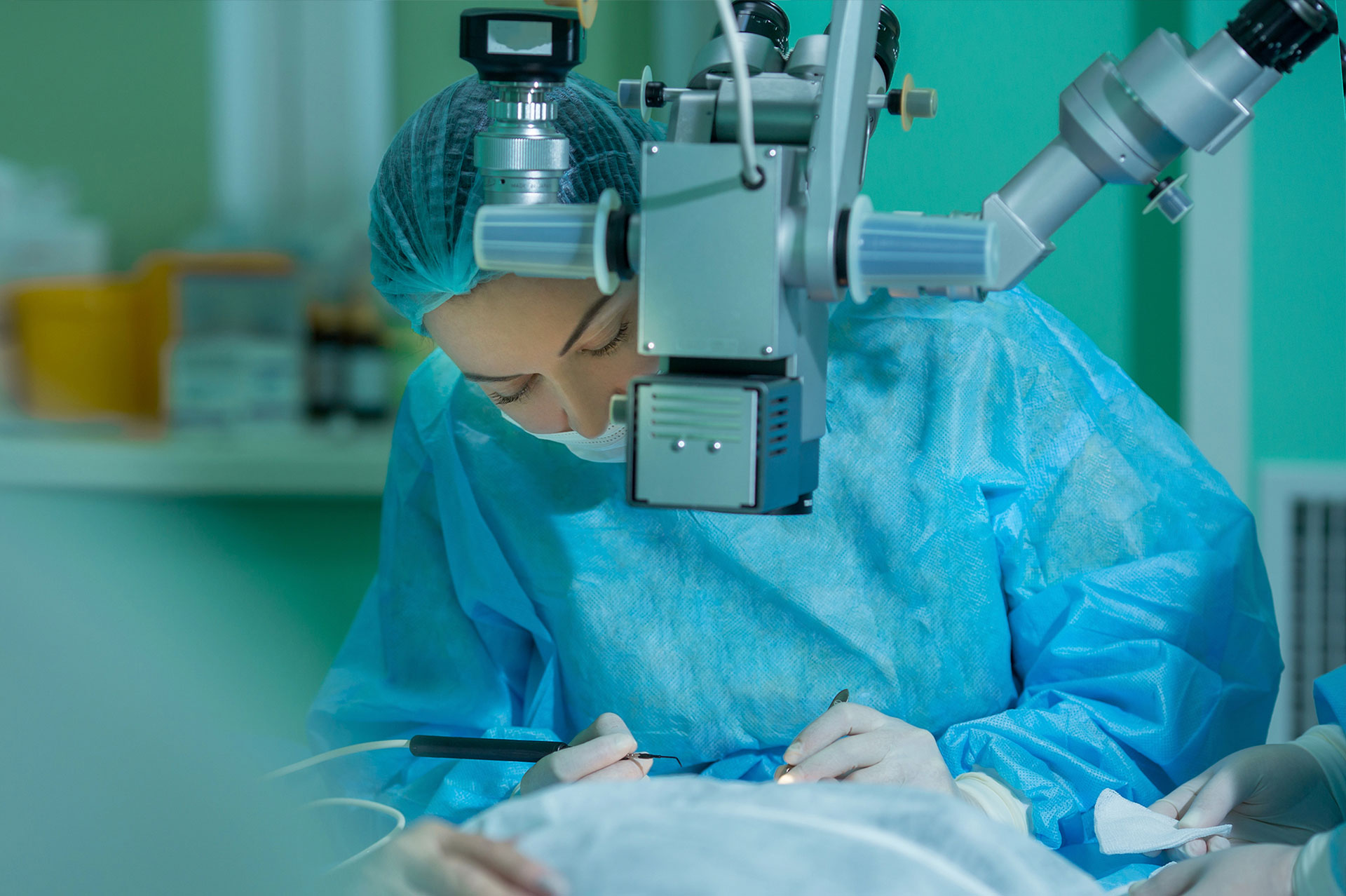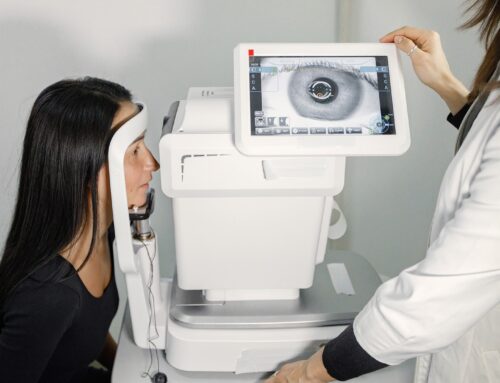Laser cataract surgery involves the removal of a distorted lens from the eye and the insertion of an artificial corrective lens. Nowadays, not all cataract surgeries are performed with a laser.
What Is Laser Cataract Surgery?
Laser cataract surgery is a primary care surgery that removes a cataract, a blurry lens in the eye, and replaces it with a fake lens to reinstate clear vision.
This process entails several steps, each of which is carried out by utilizing a laser device in some way:
Incision
A femtosecond laser is utilized to construct an incision in the eye with the aid of optical coherence tomography (OCT) scanning, which generates an enlarged, high-resolution image of your eye.
Phacoemulsification
Ultrasound vibration is conveyed at high speed to disintegrate the cataract into small fragments that are tenderly suctioned out of the eye.
Capsulotomy
Extraction of the lens (the eye capsule supports the lens; thus, it has to remain in place to accommodate the new lens that will be placed).
Replacement
The already-existing capsule is filled with a fresh lens.
An ophthalmologist performs laser cataract surgery (eye surgeon). Local anesthetic and intravenous (IV, in a vein) sedation control pain.
A tiny blade is employed to produce the eye incision for laser cataract surgery, but an OTC- equipped laser is utilized for conventional cataract surgery.
Precautions
You cannot have laser cataract surgery if you have already undergone corneal or glaucoma surgery. Similarly, conditions such as eye scarring or pupil issues also disqualify you.
Possible side effects
There are some dangers with this treatment. Surgery might have unfavorable outcomes, including bleeding, edema, infection, or eye injury. If these issues are not successfully and swiftly addressed, vision may be permanently damaged.
After cataract surgery, a secondary cataract may occasionally appear many months later, necessitating potential medical attention.
Significance of Laser Cataract Surgery
It is known that having a cataract is like looking out of a dirty window. Some describe their eyesight as clouded, foggy, fuzzy, or hazy. Clearer vision can be restored by removing a cataract and substituting it with an artificial lens.
An eye exam is used to identify cataracts. Suppose your astigmatism will be treated during the treatment or require a specialized lens implant, such as a multifocal intraocular lens. In that case, you might be a candidate for laser-assisted cataract surgery (IOL).
The choice to have laser cataract surgery rather than conventional cataract surgery is based on several variables.
The following are some benefits of laser-assisted surgery over conventional cataract surgery:
- An incision performed with a laser has been proven to seal better than one done with a blade, leading to better recovery.
- Compared to conventional cataract surgery, less energy is used during thephacoemulsification phase during laser cataract surgery. Problems such as hemorrhage, retinal detachment, and capsule damage are less likely.
- After surgery, multifocal lens implants may reduce the need for corrective eyewear.
It is not always evident when to use a laser rather than a more conventional technique. According to certain research, there is no difference between laser cataract surgery and a conventional procedure regarding the likelihood of complications or the speed of recovery.
Preparation for Laser Cataract Surgery
It’s wise to contact and ask if the laser-assisted approach would be funded in your instance because Medicare and many insurance firms don’t pay the cost for all cataract procedures. Your doctor will dilate your pupils during a non-invasive eye exam to examine the structure of your eye in advance of surgery. A complete blood count (CBC) and blood chemistry tests will be performed on you. The eye exam results that initially identified your cataract will also be considered while arranging the procedure.
As a component of your pre-surgical evaluation, you will receive an electrocardiogram (EKG) and a chest X-ray.
What to put on
You can arrive at your surgical appointment in whatever is comfortable. Make sure your hair is secured out of the way of your eyes. On the day of the surgery, avoid using cream or makeup on your face.
Drink and food
You might be told to refrain from eating or drinking before the surgery or be allowed to do so. Make careful to follow the surgery center’s recommendations for what to eat and drink before the surgery.
Medication
In the days following surgery, your doctor may advise you to reduce or stop using blood thinners. Other drugs you take might occasionally need to be adjusted as well.
Conclusion
One approach to treating cataracts is laser surgery. It is thought to be equally safe as conventional cataract surgery and might even have some clinical benefits. However, not everyone should use this strategy; your health insurance may not pay for it. The ideal course of treatment for you can be discussed between you and your healthcare professional.







